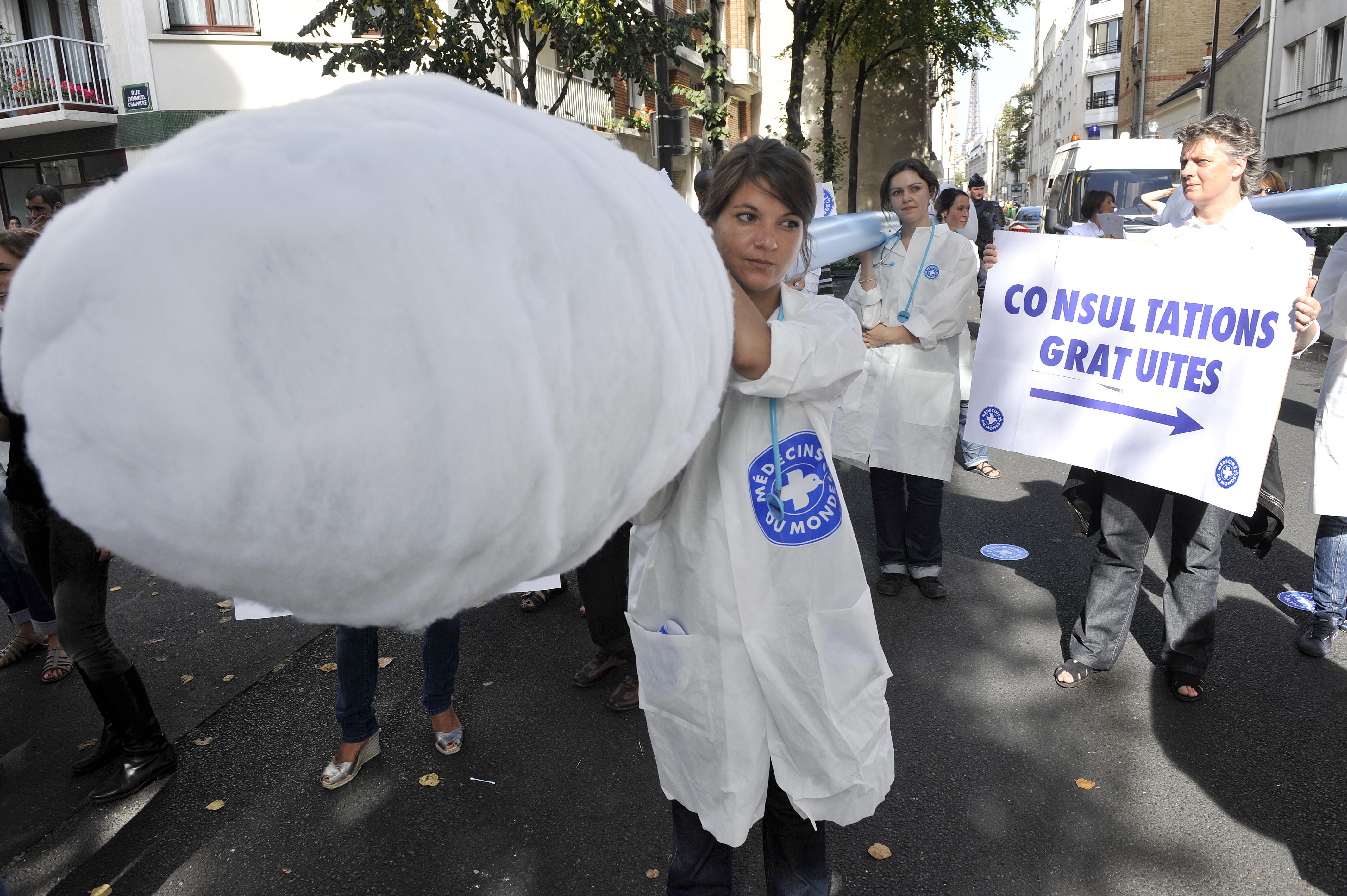The news that the CIA is no longer using vaccination programs as a front for spying operations may come as a relief to many humanitarian workers. Yet their fears should not be completely assuaged, because the CIA’s activities—which undoubtedly threatened the safety of humanitarian workers and those they seek to help—pale in comparison to the surveillance that the NSA is conducting on humanitarian organizations across the globe.
In one of the least-discussed stories arising out of the materials leaked by Edward Snowden, in December 2013 the Guardian reported that the NSA and GCHQ, a British intelligence agency, are targeting humanitarian agencies such as UNICEF, the U.N. Development Program, and Medecins du Monde (Doctors of the World). Each of those organizations, named in leaked GCHQ documents, had been allocated a specific ID number in GCHQ’s “target knowledge base,” indicating they had been identified for targeted surveillance by the agency. The United Nations made no public response to the allegations. When Medecins du Monde wrote to GCHQ seeking an explanation, the intelligence service refused to answer any questions. The Guardian says that the documents “do not disclose the extent of any surveillance or for how long any collection took place.”
Yet given what we know about the NSA and GCHQ, it seems likely that the surveillance continues, and that it involves gathering data held in humanitarian databases and intercepting groups’ calls, e-mails and text messages. The vast array of issues addressed and programs run by humanitarian organizations mean that this could include data on ethnic communities fleeing genocide, women subjected to sexual violence, child soldiers, refugees from conflicts in Syria and Afghanistan, and impoverished areas suffering serious health problems.
Spying on humanitarian agencies is perhaps one of the most egregious examples of the grave overreach and unconstrained power of the American and British intelligence agencies. It is undoubtedly a hugely counterproductive, risky form of surveillance—it drastically undermines the trust that humanitarian organizations rely upon in order to reach marginalized and insecure communities. Furthermore, it imperils both the humanitarian workers and the vulnerable individuals they are seeking to assist.
Surveillance of humanitarian organizations under the guise of national security should be thought of as equivalent to bombing hospitals during war. If the independence and impartiality of humanitarian organizations is in question, people in need will not seek assistance or may conceal important information—names that may suggest ethnic or religious affiliations, medical histories that may reveal histories of combat, contact information that would enable their location to be pinpointed.
Each of these pieces of information may be crucial to a humanitarian organization trying to deliver food or medical aid. Now groups are finding their impartiality brought into question as a result of suggestions that they are “agents of the West” or that the data they collect could ultimately lay the groundwork for U.S. drone strikes.
Halting the CIA’s use of vaccination programs is an important recognition by the White House that using humanitarian efforts as a front for security operations imperils the safety of humanitarian workers and brings their independence and neutrality into question. Yet the policy change also serves to highlight the U.S. government’s hypocrisy.
The harm that humanitarian spying causes—undermining the impartiality and independence that many humanitarian organizations are defined by, violating confidential relationships, exposing sensitive data to analysis and dissemination—far outweighs any benefit gained by the intelligence services in carrying out the surveillance. International law prohibits armies from attacking humanitarian actors; it should also prohibit spies from snooping on them.
